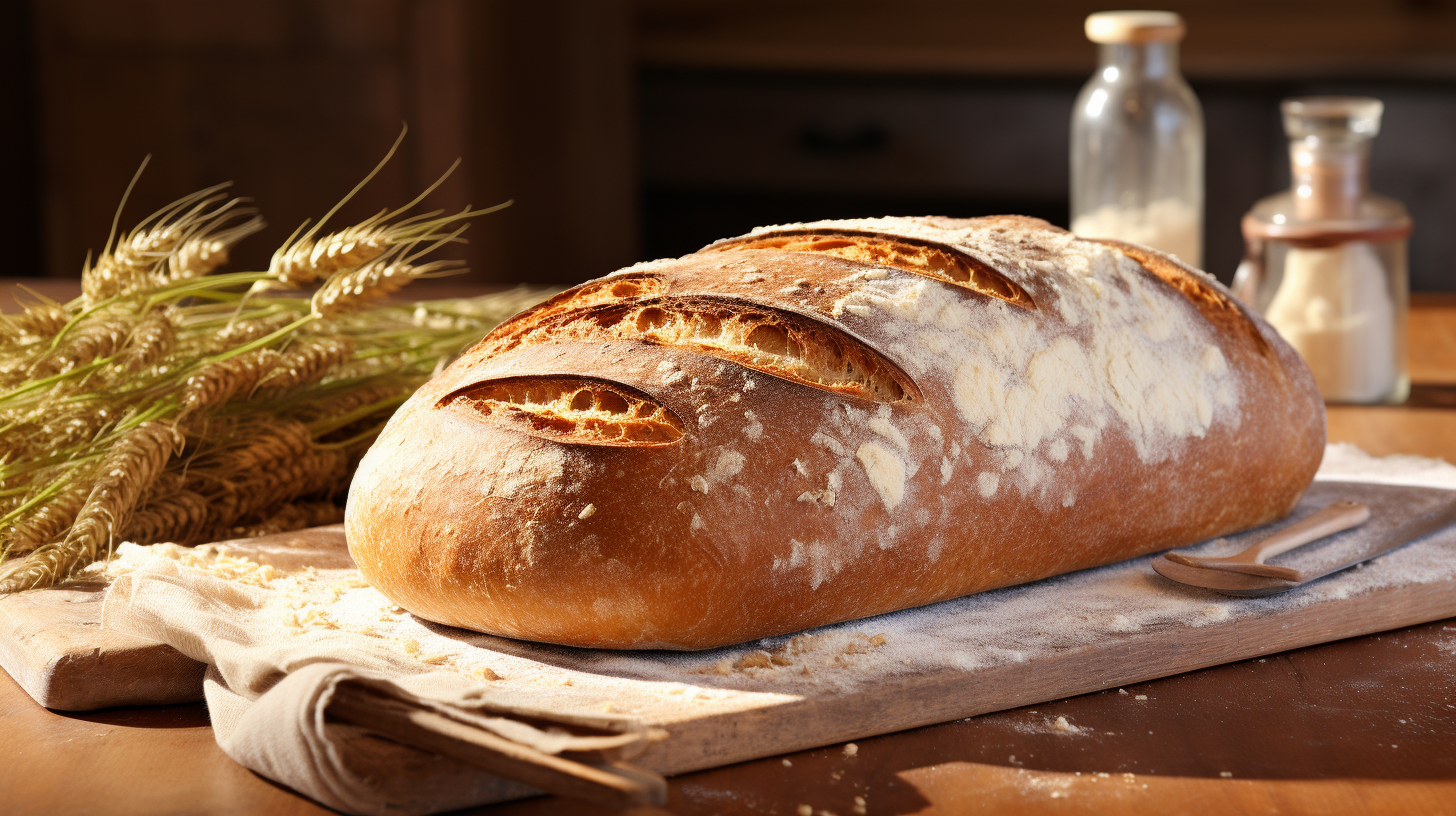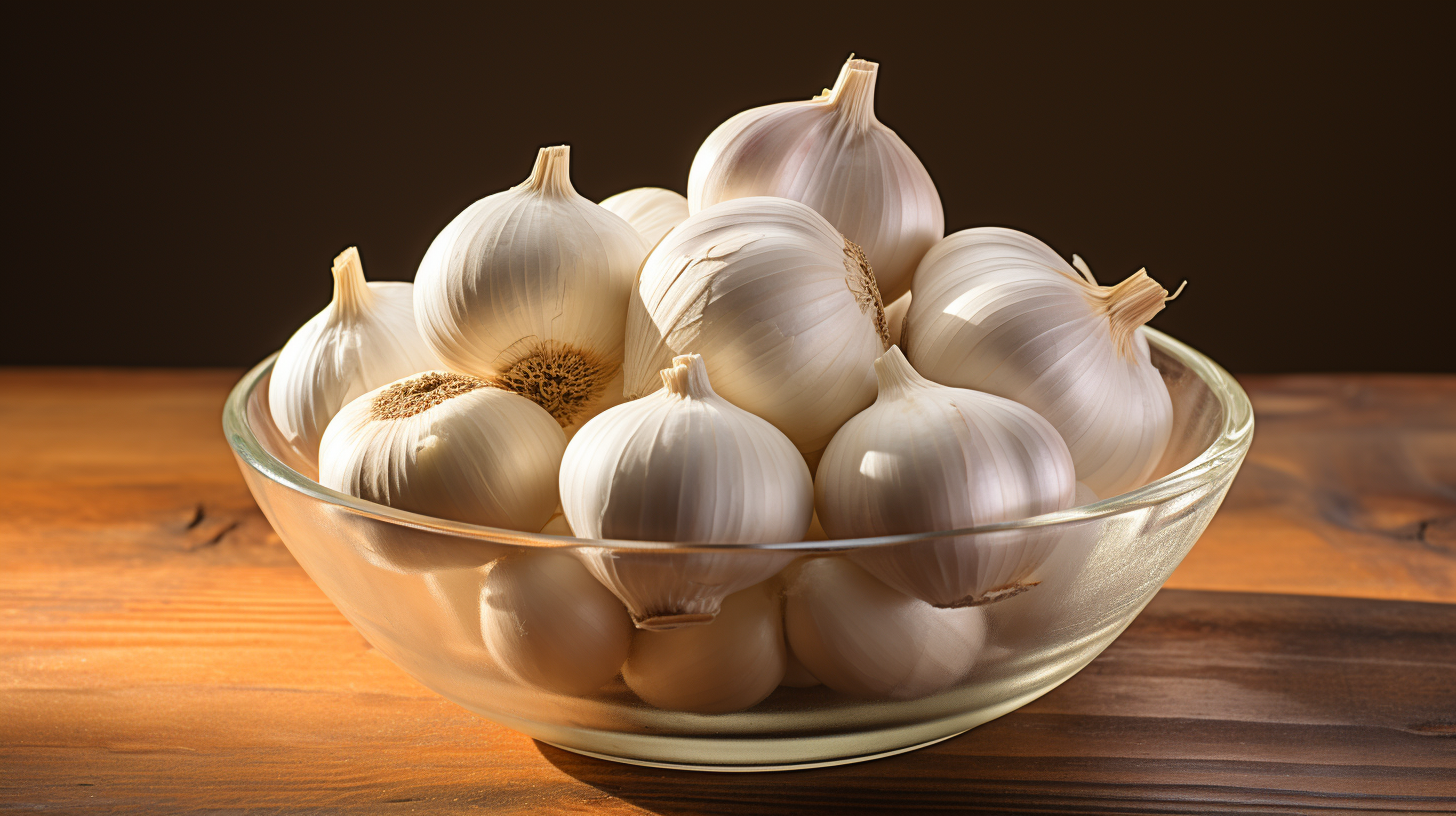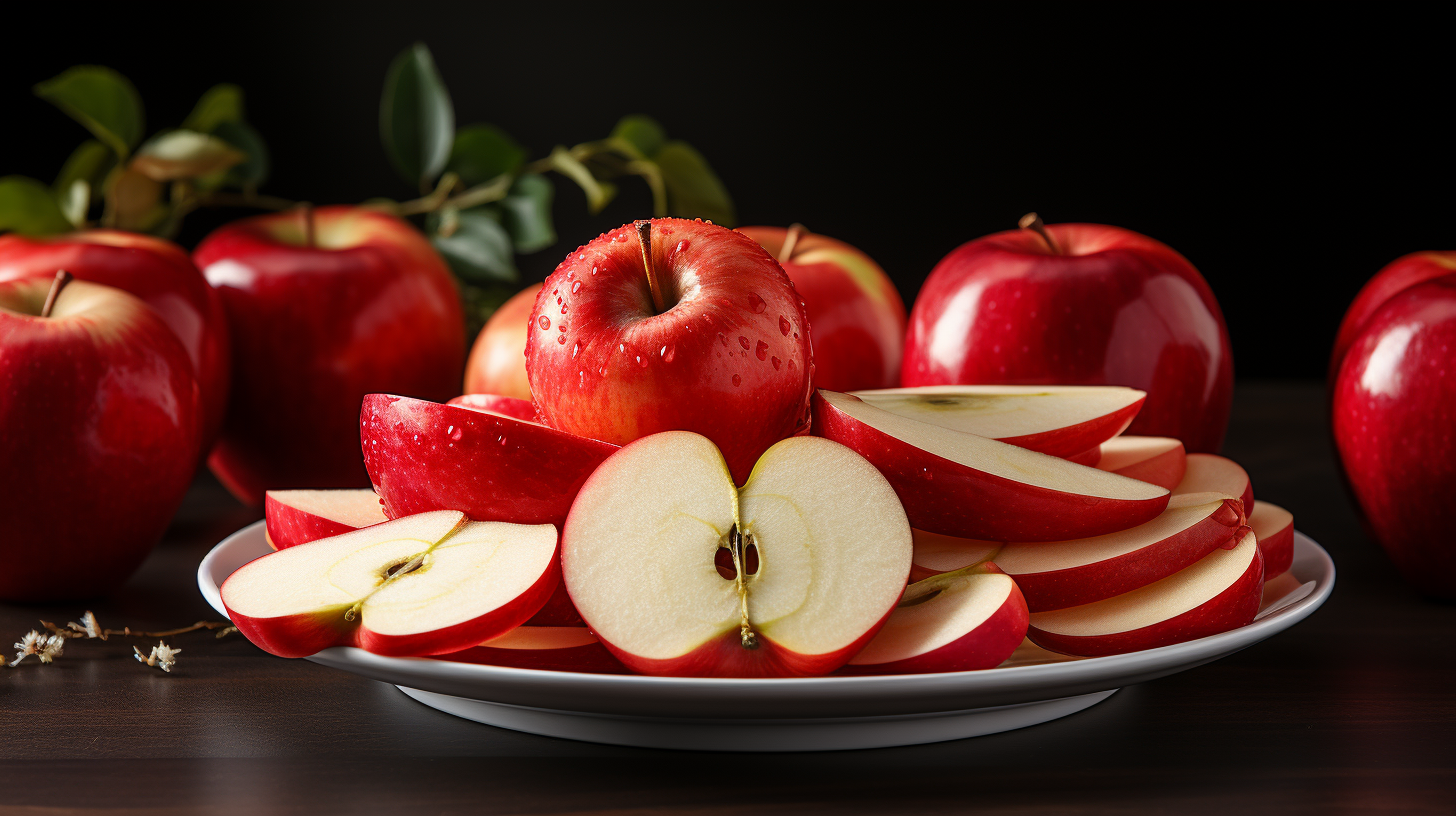Have you ever wondered what role your gut plays in your overall well-being? Is there a way to naturally boost your gut health for optimal digestion? The answer lies in enhancing your gut flora, the complex community of bacteria that resides in your digestive system. But how can you achieve this naturally?
In this comprehensive guide, we will explore various natural ways to enhance your gut flora for optimal digestion and overall well-being. By implementing these strategies, you can improve your gut health, support the balance of gut bacteria, and promote a healthy digestive system. So, let’s dive in and discover the secrets to optimizing your gut flora naturally.
Key Takeaways:
- Enhancing gut flora naturally is crucial for improving gut health and overall well-being.
- By implementing strategies like incorporating probiotics, consuming gut-friendly foods, and adopting a holistic approach to gut health, you can support the balance of gut bacteria.
- Consult with a healthcare professional or registered dietitian before making any significant dietary or lifestyle changes.
- Boosting your gut flora can lead to long-term benefits for your digestive system and overall health.
- Stay tuned to discover the secrets of enhancing your gut flora naturally and improving your gut health.
Understanding Gut Flora and Its Importance
Before exploring the various ways to enhance gut flora naturally, it is crucial to have a clear understanding of what gut flora is and why it is essential for our overall health. Gut flora, also known as gut microbiota, refers to the community of microorganisms that reside in our digestive system.
These microorganisms, including bacteria, viruses, and fungi, play a vital role in maintaining our digestive health and supporting various bodily functions. The gut flora acts as a symbiotic partner, assisting in the digestion and absorption of nutrients, regulating the immune system, synthesizing essential vitamins, and even influencing our mood and brain function.
“The gut microbiota is considered the forgotten organ” – Dr. Justin Sonnenburg
This complex ecosystem of microorganisms in our gut consists of trillions of microbial cells, with thousands of different species. The composition of gut flora can vary based on various factors such as diet, environment, medication use, and overall health.
The gut microbiota is not only diverse but also highly individualized, with each person having a unique microbial fingerprint. The delicate balance between beneficial and harmful bacteria in our gut is crucial for maintaining optimal digestion and overall well-being.
The gut flora has a profound impact on our health, and an imbalance in the microbial population, known as dysbiosis, can lead to various health issues. Research has linked an unhealthy gut microbiota to conditions such as obesity, inflammatory bowel disease, allergies, autoimmune disorders, and even mental health problems like anxiety and depression.
By understanding the importance of gut flora and how it influences our overall health, we can begin to explore strategies to optimize and enhance the microbial population in our gut. This section will delve further into natural methods of enhancing gut flora, ensuring a healthy balance and promoting optimal digestion and well-being.
| Key Points | Understanding Gut Flora and Its Importance |
|---|---|
| The gut flora refers to the microorganisms that reside in our digestive system. | – Gut flora plays a vital role in digestion, immune function, and nutrient absorption. |
| – The gut microbiota is highly diverse and individualized. | – Dysbiosis, an imbalance in gut flora, can lead to various health issues. |
The Benefits of a Healthy Gut Microbiota
A healthy gut microbiota offers numerous benefits for your overall well-being. When your gut flora is balanced, it can support digestive health, boost your immune system, improve nutrient absorption, and even contribute to mental well-being.
Let’s take a closer look at these benefits:
1. Digestive Health
Enhancing gut flora naturally can significantly improve your digestive health. A balanced gut microbiota helps in the breakdown of food, absorption of nutrients, and regulation of bowel movements. It promotes a healthy gut lining, reducing the risk of digestive issues like constipation, diarrhea, and bloating.
2. Immune System Support
Your gut plays a vital role in supporting your immune system. A healthy gut microbiota helps in the production of antibodies and activates immune cells that protect your body against harmful pathogens and infections. It regulates inflammation, reduces the risk of allergies, and improves overall immune function.
3. Nutrient Absorption
Improving gut health enhances your body’s ability to absorb nutrients effectively. A balanced gut microbiota aids in the digestion and absorption of vitamins, minerals, and other essential nutrients from the food you consume. This ensures that your body receives the necessary nutrients it needs to thrive.
4. Mental Well-being
The gut-brain connection is a fascinating aspect of gut health. A healthy gut microbiota produces neurotransmitters like serotonin that influence your mood, emotions, and mental well-being. By enhancing gut flora naturally, you can contribute to a healthy gut-brain axis, promoting overall mental wellness and reducing the risk of mood disorders.
A healthy gut microbiota supports digestive health, boosts the immune system, improves nutrient absorption, and contributes to mental well-being.

Incorporating Probiotics for Gut Health
Probiotics are beneficial bacteria that can play a significant role in enhancing gut flora naturally and promoting a healthy gut. These live microorganisms can help restore the balance of bacteria in your digestive system and support optimal digestion and overall well-being.
There are several sources of probiotics that you can incorporate into your daily routine. One popular option is fermented foods, such as yogurt, sauerkraut, kimchi, and kefir. These foods undergo a fermentation process that introduces beneficial bacteria, contributing to a healthy gut microbiota. Including these foods in your diet can provide a natural source of probiotics to enhance gut flora.
Did You Know? Yogurt is one of the most well-known probiotic-rich foods. It contains specific strains of bacteria, such as Lactobacillus and Bifidobacterium, that can improve gut health when consumed regularly.
If you have dietary restrictions or prefer alternatives to fermented foods, probiotic supplements are another option to consider. These supplements typically contain specific strains of beneficial bacteria that have been shown to support gut health. It’s important to choose high-quality probiotic supplements from reputable companies to ensure their effectiveness.
Choosing the Right Probiotic Supplement
When selecting a probiotic supplement, look for the following key factors:
- The presence of specific strains known for their beneficial effects
- A high number of colony-forming units (CFUs) to ensure potency
- Delayed-release capsules or enteric coatings to protect the bacteria from stomach acid, allowing them to reach your gut more effectively
Consult with a healthcare professional or registered dietitian to determine the appropriate probiotic strains and dosage for your specific needs.
By incorporating probiotics through fermented foods or supplements into your daily routine, you can provide your gut with the beneficial bacteria it needs to enhance gut flora naturally. However, it’s important to note that probiotics are not a one-size-fits-all solution, and individual results may vary. If you have any concerns or underlying health conditions, it’s always best to seek guidance from a healthcare professional.
Gut-Friendly Foods for Enhancing Gut Flora
The food we consume plays a significant role in shaping our gut flora. By incorporating gut-friendly foods into your diet, you can naturally enhance your gut flora and promote a healthy digestive system. These foods are rich in prebiotics, which provide vital nutrients and fibers that support the growth of beneficial bacteria in your gut.
Here are some examples of gut-friendly foods that you can include in your meals:
- Leafy greens: Spinach, kale, and other leafy greens are excellent sources of fiber, vitamins, and minerals that can nourish your gut bacteria.
- Probiotic-rich foods: Incorporate fermented foods like yogurt, kefir, sauerkraut, and kimchi into your diet to introduce beneficial bacteria to your gut.
- Whole grains: Opt for whole grains such as brown rice, quinoa, and oats, which are high in fiber and help fuel the growth of beneficial gut bacteria.
- Fruits and vegetables: Colorful fruits and vegetables like berries, apples, broccoli, and carrots provide essential nutrients and antioxidants that promote gut health.
- Legumes: Beans, lentils, and chickpeas are rich sources of fiber and plant-based proteins that benefit the gut microbiota.
By incorporating these gut-friendly foods into your meals, you can enhance your gut flora naturally and promote a healthy digestive system. Remember to consult with a healthcare professional or registered dietitian for personalized advice.

Emphasizing a Prebiotic-Rich Diet
When it comes to enhancing gut flora naturally, one key factor to consider is incorporating a prebiotic-rich diet. Prebiotics are non-digestible fibers that serve as food for probiotics, the beneficial bacteria that reside in your digestive system. By nourishing these probiotics, you can help them thrive and promote a healthy balance of gut bacteria.
Including prebiotic-rich foods in your diet is an effective way to support gut health and enhance gut flora naturally. These foods provide the necessary nutrients and fibers that act as fuel for probiotics, allowing them to flourish and perform their essential functions in your digestive system.
To get you started, here are some examples of prebiotic-rich foods that you can incorporate into your daily meals:
Table: Prebiotic-Rich Foods to Enhance Gut Flora Naturally
Food Prebiotic Content Garlic Fructans Onions Fructans, inulin Artichokes Inulin Asparagus Inulin Bananas Resistant starch Whole grains Various types of fiber
Incorporating these prebiotic-rich foods into your meals can provide the necessary fuel for probiotics, helping them to thrive and support a healthy gut flora. Remember to gradually introduce these foods into your diet to avoid any digestive discomfort, especially if you’re not accustomed to consuming high-fiber foods.
In addition to a prebiotic-rich diet, it’s important to maintain a balanced and varied eating pattern that includes other gut-friendly foods, such as probiotics, lean proteins, fruits, vegetables, and healthy fats. Combining these dietary approaches can help optimize your gut flora and support overall digestive health.
Holistic Approaches for Gut Health
While dietary changes play a crucial role in enhancing gut flora naturally, adopting holistic approaches can further contribute to a healthy gut. By incorporating stress management, regular exercise, and sleep hygiene into your lifestyle, you can positively impact your gut flora and overall digestive well-being.
Stress Management
Chronic stress can disrupt the balance of gut bacteria and lead to digestive issues. Incorporating stress management techniques into your daily routine can help support a healthy gut. Consider practicing meditation, yoga, deep breathing exercises, or engaging in activities that promote relaxation and a sense of well-being.
Regular Exercise
Physical activity has been shown to have a positive impact on gut health. Regular exercise can help stimulate gut motility, promoting proper digestion and nutrient absorption. Aim for at least 30 minutes of moderate-intensity exercise most days of the week, such as brisk walking, cycling, or swimming.
Sleep Hygiene
Adequate sleep is essential for maintaining a healthy gut. Poor sleep quality and insufficient sleep have been associated with imbalances in gut bacteria. Establish a regular sleep schedule, create a relaxing bedtime routine, and prioritize getting 7-9 hours of quality sleep each night to support your gut health.
“Adopting holistic approaches, such as stress management, regular exercise, and maintaining good sleep hygiene, can have a profound impact on your gut health. By reducing stress levels, staying physically active, and getting sufficient sleep, you can promote a balanced gut flora and optimize your digestive well-being.”
| Holistic Approach | Benefits |
|---|---|
| Stress Management | Reduces gut bacteria imbalance and improves digestion |
| Regular Exercise | Stimulates gut motility and enhances nutrient absorption |
| Sleep Hygiene | Promotes a healthy gut microbiota and optimal digestion |
Supporting Gut Bacteria Balance
Maintaining a balance of gut bacteria is crucial for optimal digestion and overall health. By implementing strategies to support a healthy balance in your gut microbiota, you can enhance gut flora naturally and promote a thriving digestive system.
Avoid Excessive Antibiotic Use
While antibiotics can be life-saving in certain situations, their overuse can disrupt the delicate balance of gut bacteria. It is important to only take antibiotics when necessary and as prescribed by your healthcare provider. Discuss alternative treatment options, such as probiotics, with your doctor to minimize the impact on your gut flora.
Minimize Exposure to Toxins
Toxins present in our environment can negatively affect gut health and disrupt the balance of gut bacteria. Taking steps to minimize exposure to toxins can help support a healthy gut microbiota. Consider using natural cleaning products, avoiding processed foods with artificial additives, and choosing organic produce to reduce your toxin exposure.
Manage Digestive Disorders
Digestive disorders, such as irritable bowel syndrome (IBS) or inflammatory bowel disease (IBD), can disrupt the balance of gut bacteria. Working with a healthcare professional to manage these conditions can help support a healthy gut microbiota. This may involve dietary changes, stress management techniques, and targeted treatments to address the underlying causes of your digestive disorder.
By implementing these strategies, you can take control of your gut health and support a healthy balance of gut bacteria for optimal digestion and overall well-being.

The Role of Fiber in Gut Flora Enhancement
Fiber plays a vital role in enhancing gut flora naturally and promoting a healthy digestive system. There are two main types of dietary fiber: soluble and insoluble.
Soluble Fiber
Soluble fiber dissolves in water, forming a gel-like substance in the digestive tract. This type of fiber is fermented by beneficial gut bacteria, producing short-chain fatty acids that nourish the colon cells and support a healthy gut microbiota balance. Incorporating soluble fiber into your diet can help regulate bowel movements, reduce cholesterol levels, and support overall gut health.
Insoluble Fiber
Insoluble fiber does not dissolve in water and adds bulk to the stool, promoting regular bowel movements and preventing constipation. While it is not fermented by gut bacteria, insoluble fiber still plays a crucial role in maintaining gut health by promoting proper digestion and preventing digestive disorders.
It is essential to include both soluble and insoluble fiber in your diet to enhance gut flora naturally. This can be achieved by consuming a variety of fiber-rich foods.
Fiber-Rich Foods for Gut Flora Enhancement
Here are some examples of gut-friendly foods that are rich in fiber:
- Fruits like berries, apples, and pears
- Vegetables such as broccoli, Brussels sprouts, and carrots
- Legumes like lentils, chickpeas, and black beans
- Whole grains including oats, brown rice, and quinoa
- Nuts and seeds like almonds, chia seeds, and flaxseeds
Incorporating these fiber-rich foods into your daily meals can help support a healthy gut flora and improve your overall digestive health. Remember to increase your fiber intake gradually and drink plenty of water to prevent any potential discomfort associated with an abrupt increase in fiber consumption.
By prioritizing fiber-rich foods, you can optimize gut bacteria balance and enhance your gut flora naturally, leading to improved digestion and overall well-being.

The Impact of Lifestyle Factors on Gut Flora
Beyond diet, various lifestyle factors can have a significant impact on the balance of gut bacteria and overall gut flora. Factors such as smoking, alcohol consumption, and exposure to environmental toxins can disrupt the delicate ecosystem of the gut and hinder its ability to function optimally.
Smoking has been shown to alter the composition of gut bacteria, leading to an imbalance in the microbiota. Studies have found that smoking can reduce the diversity of gut bacteria and increase the levels of harmful bacteria. This imbalance can negatively affect digestion, nutrient absorption, and overall gut health.
Alcohol consumption, especially excessive or chronic drinking, has also been linked to gut dysbiosis. Alcohol can disrupt the composition of gut bacteria and increase the permeability of the intestinal lining, leading to a condition known as “leaky gut.” This can result in inflammation, immune system dysfunction, and a range of digestive issues.
Exposure to environmental toxins, such as pesticides, heavy metals, and pollutants, can also disrupt the delicate balance of gut bacteria. These toxins can negatively affect the diversity and abundance of beneficial bacteria, contributing to gut dysbiosis and compromising overall gut health.
To maintain a healthy gut flora, it is important to minimize exposure to these lifestyle factors and adopt habits that support a balanced microbiota. Quitting smoking and reducing alcohol consumption are crucial steps in restoring and maintaining a healthy gut ecosystem. Additionally, taking measures to reduce exposure to environmental toxins, such as consuming organic foods and reducing the use of household chemicals, can help support gut health.
“Reducing exposure to lifestyle factors that negatively impact gut flora can play a significant role in maintaining a healthy gut ecosystem.” – Dr. Sarah Williams, Gut Health Expert
Recommendations for a Healthy Gut
- Quit smoking: Smoking cessation can positively impact the composition of gut bacteria and restore a healthier gut flora balance.
- Limit alcohol consumption: Moderation is key when it comes to alcohol. Limit your intake to moderate levels or consider reducing and eliminating alcohol to support a healthy gut microbiota.
- Minimize exposure to environmental toxins: Choose organic and pesticide-free foods, minimize the use of household chemicals, and avoid areas with high levels of air pollution.
- Support detoxification: Engage in regular exercise to support the body’s natural detoxification processes and help eliminate toxins.
- Manage stress: Chronic stress can disrupt gut health. Implement stress management techniques such as meditation, yoga, and deep breathing exercises to support gut flora balance.
- Get enough sleep: Prioritize quality sleep to support overall health, including a healthy gut microbiota.
By being mindful of these lifestyle factors and adopting habits that support a healthy gut, you can enhance your gut flora naturally and promote optimal digestion and overall well-being.
Lifestyle Factor Impact on Gut Flora Smoking Reduces gut bacteria diversity and increases harmful bacteria levels Alcohol Consumption Can disrupt gut bacteria composition, leading to gut dysbiosis and “leaky gut” Exposure to Environmental Toxins Can negatively affect the diversity and abundance of beneficial gut bacteria
Conclusion
In conclusion, enhancing gut flora naturally is crucial for optimal digestion and overall well-being. By incorporating probiotics into your daily routine, consuming gut-friendly foods, and adopting a holistic approach to gut health, you can support the balance of gut bacteria, improve nutrient absorption, and promote a healthy digestive system.
However, it is essential to remember that everyone’s body is unique, and what works for one person may not work for another. It is always advisable to consult with a healthcare professional or registered dietitian before making significant dietary or lifestyle changes to ensure they align with your specific needs.
By taking the necessary steps to boost your gut flora, you can reap long-term benefits for your overall health. So start incorporating these strategies into your daily life and enjoy the positive impact they can have on your digestive well-being.
FAQ
How can I naturally enhance my gut flora?
There are several ways to enhance your gut flora naturally. Incorporating probiotics into your diet, consuming gut-friendly foods rich in prebiotics, and adopting a balanced and fiber-rich diet are all effective strategies. Additionally, practicing stress management, getting regular exercise, and prioritizing sleep can also support a healthy gut.
Why is gut flora important?
Gut flora, also known as gut microbiota, plays a crucial role in digestion, immune function, and nutrient absorption. A healthy and balanced gut flora can support overall gut health, boost the immune system, improve nutrient absorption, and even contribute to mental well-being.
How do probiotics promote gut health?
Probiotics are beneficial bacteria that can enhance gut flora. They can be found in fermented foods like yogurt, kefir, sauerkraut, and kimchi. Probiotic supplements are also available. By consuming probiotics, you introduce beneficial bacteria into your gut, helping to support the balance of gut microbiota and promote a healthy digestive system.
What are gut-friendly foods?
Gut-friendly foods are those that promote the growth of beneficial bacteria in your gut. They are typically rich in prebiotics, which are fibers that serve as food for probiotics. Some examples of gut-friendly foods include whole grains, fruits, vegetables, legumes, and fermented foods.
How can I incorporate prebiotics into my diet?
Including prebiotic-rich foods in your diet is a great way to enhance your gut flora naturally. Some examples of prebiotic-rich foods include garlic, onions, bananas, asparagus, oats, and flaxseeds. These foods provide the necessary fibers that serve as food for probiotics, helping them thrive in your gut.
Are there holistic approaches to promote gut health?
Yes, holistic approaches can also contribute to a healthy gut. Practices such as stress management, regular exercise, and adequate sleep can positively impact your gut flora. Reducing stress levels, engaging in physical activity, and getting quality sleep can support a healthy balance of gut bacteria and overall digestive well-being.
How can I maintain a healthy balance of gut bacteria?
To support a healthy balance of gut bacteria, it is important to avoid excessive antibiotic use, minimize exposure to toxins, and manage digestive disorders effectively. Antibiotics can disrupt the balance of gut microbiota, so it’s crucial to use them judiciously. Additionally, reducing exposure to environmental toxins and addressing digestive issues promptly can help maintain a healthy gut flora.
What is the role of fiber in enhancing gut flora?
Fiber plays a vital role in promoting a healthy gut flora. There are two types of dietary fiber: soluble and insoluble. Both types are beneficial for gut health as they support regular bowel movements and act as food for probiotics. Including fiber-rich foods like whole grains, fruits, vegetables, and legumes in your diet can enhance your gut flora naturally.
How do lifestyle factors affect gut flora?
Lifestyle factors such as smoking, excessive alcohol consumption, and exposure to environmental toxins can negatively impact the balance of gut bacteria. It’s important to minimize these factors and adopt a healthy lifestyle to maintain a healthy gut flora. Quitting smoking, moderating alcohol intake, and reducing exposure to toxins can help support a balanced gut microbiota.








